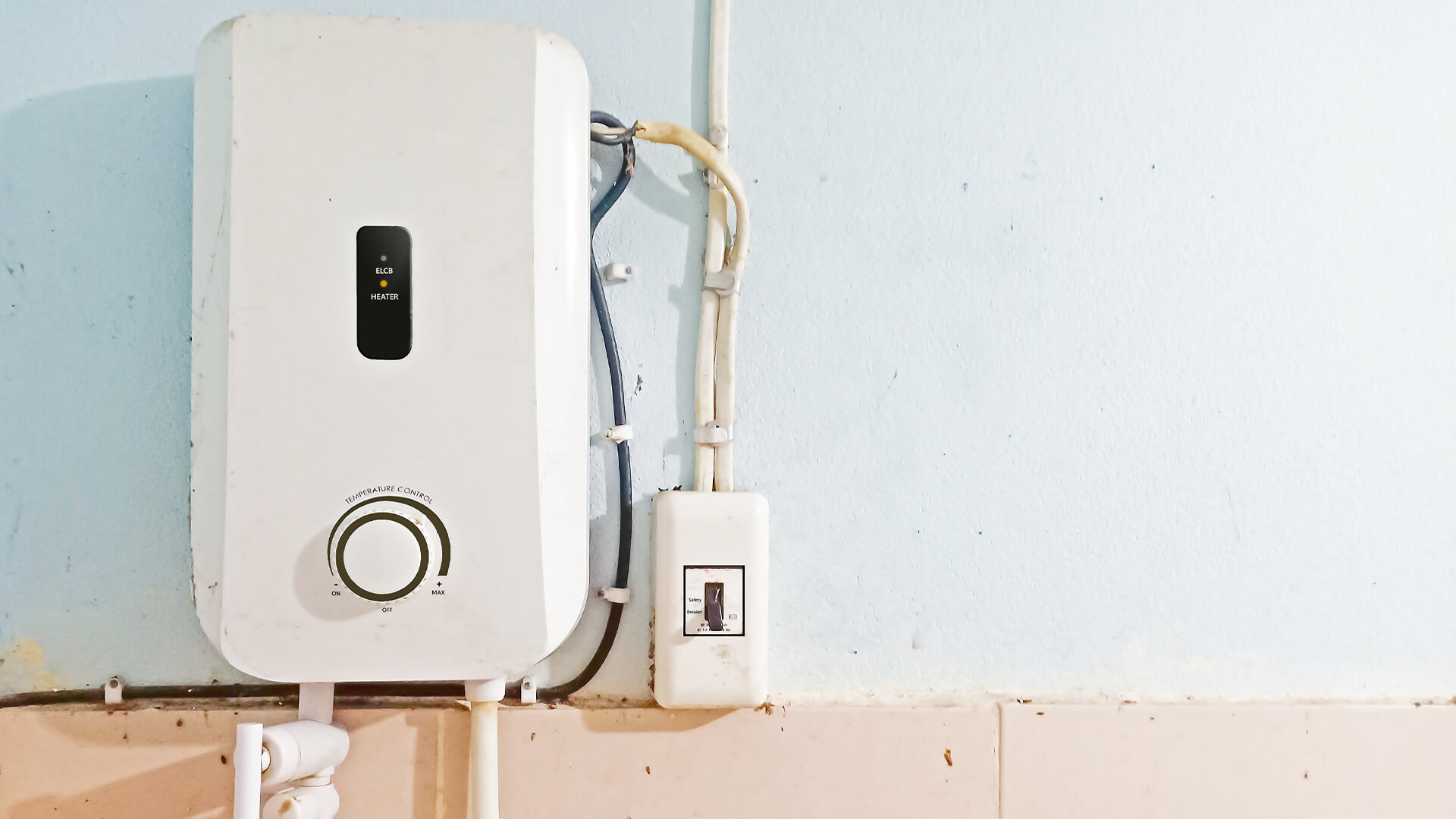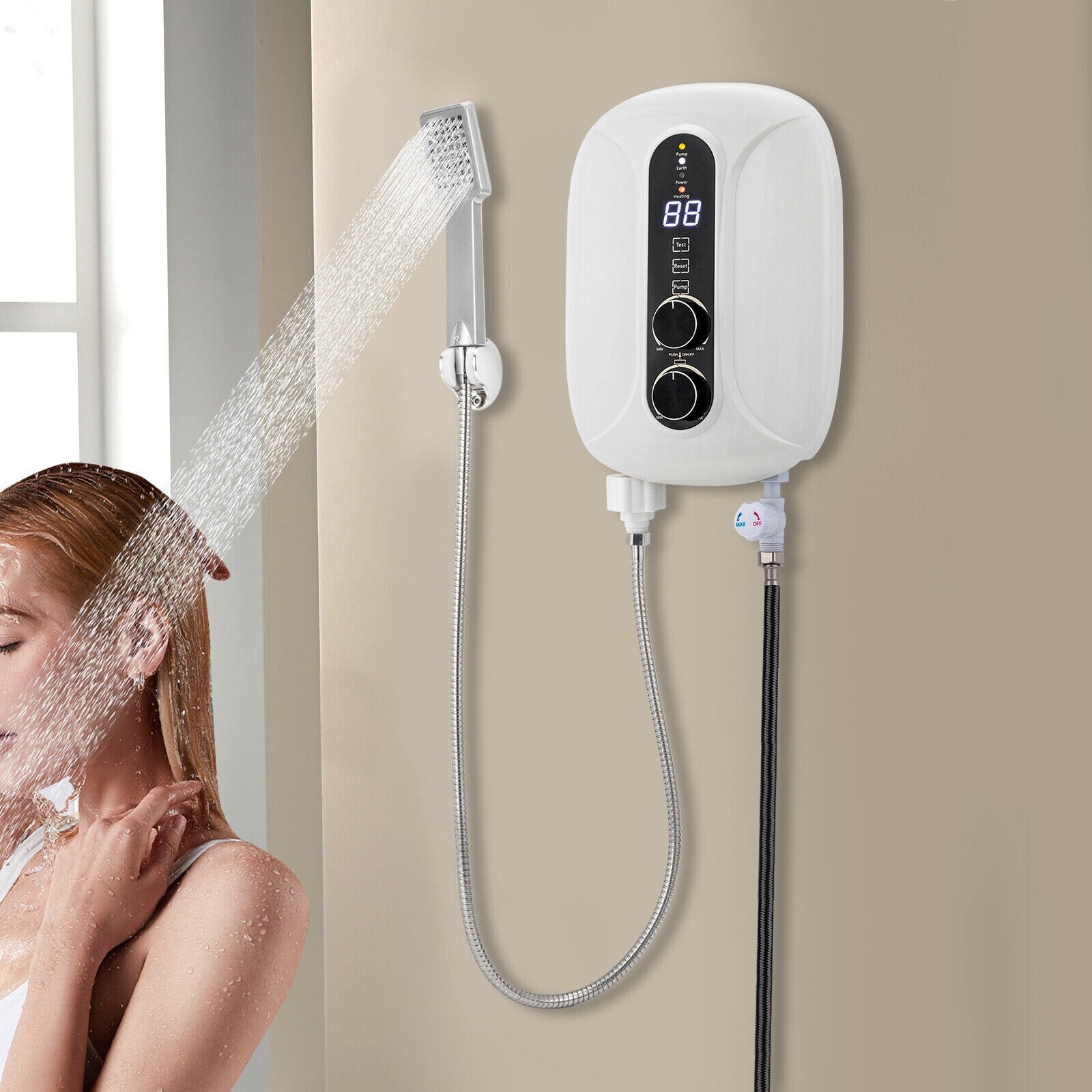Just about every person will have their own individual conception when it comes to Unveiling the Hot Trend: The Benefits of Tankless Water.

In a world where benefit and efficiency reign supreme, it's no surprise that property owners are constantly on the lookout for smarter means to handle their home's energy intake and convenience. One advancement that has actually progressively acquired appeal is the tankless hot water heater. Yet exactly what makes these systems stand apart from the standard tank-based versions most of us grew up with? Allow's dive in and check out the advantages of tankless hot water heater, helping you choose if it's time to make the button in your home.
Introduction
Image this: you step into the shower after a lengthy day, anticipating a soothing cascade of hot water, just to be greeted by icy beads because the last person utilized it all up. Noise acquainted? Conventional hot water heater save a fixed quantity of warm water, implying you go to the grace of that container's supply. Tankless systems, on the other hand, warmth water on demand. Say goodbye to running out mid-shower, no more fumbling with routines just to ensure hot water is offered.
Recognizing Tankless Water Heaters
What Are Tankless Hot Water Heater?
Tankless water heaters, often referred to as on-demand or immediate water heaters, supply hot water just as it's required. Instead of keeping gallons of pre-heated water, these devices kick right into activity the moment you turn on the faucet. Water goes through a warm exchanger, heating up in real-time, suggesting you get an uninterrupted circulation of warm water without the demand for a big tank resting idly by.
Exactly how Do They Differ from Traditional Systems?
Conventional heating units hold a storage tank of warm water, utilizing energy to keep that tank at a constant temperature. Tankless systems eliminate the standing supply, reducing thrown away power and the cumbersome impact of a big cyndrical tube. Basically, you're upgrading from a "accumulation" state of mind to a "made-to-order" technique.
Usual Kinds Of Tankless Systems
Tankless hot water heater usually come in two varieties: gas and electric. Gas versions tend to provide greater circulation rates, perfect for bigger houses, while electrical designs typically offer smaller homes and are commonly less complicated to mount. In addition, some systems are made for point-of-use (offering one fixture) while others can manage the entire home's warm water requirements.
Secret Benefits of Tankless Water Heaters
Power Performance and Expense Savings
Say goodbye to heating up a giant tank's well worth of water and keeping it cozy throughout the day. Tankless heating systems minimize standby energy losses, which can decrease utility bills. While the first cost might be higher, the long-term savings typically warrant the financial investment.
3. Space-Saving Layout
If your home is short on storage, getting rid of the bulky container frees up important space. Tankless systems are portable and can often be mounted on wall surfaces, concealed in edges, or installed in limited utility storage rooms without monopolizing the whole area.
4. Longer Life expectancy
A well-maintained tankless water heater can outlive its tank-based cousin. Standard storage tanks may last 10-15 years, while tankless versions can keep chugging along for 20 years or more, making them a solid investment with time.
1. Unlimited Hot Water Supply
Ever before had to set up showers so every person obtains their fair share of hot water? With tankless, that becomes a thing of the past. As long as the heater's circulation capability isn't gone beyond, you can take back-to-back showers without developing into a popsicle.
5. Improved Water Quality
Storing water in a container can occasionally bring about debris accumulation or a slightly "off" taste. With tankless systems, fresh water is heated up instantly, lowering the chances of sediment build-up and potentially offering cleaner-tasting water.
Factors to consider Prior To Changing
Though the benefits are engaging, it's a good idea to take into consideration a couple of factors before completely devoting.
Assessing Your Home's Water Usage Patterns
If your house simultaneously uses multiple fixtures with high warm water need, see to it the system's flow price satisfies your needs. Recognizing your usage patterns helps you pick the right size and type of tankless heating system.
Upkeep and Care Tips
Tankless systems are fairly reduced maintenance, but they aren't set-it-and-forget-it devices.
Normal Cleaning and Descaling
Difficult water minerals can build up in the warmth exchanger, influencing efficiency. Normal descaling (often recommended yearly) keeps the system going for peak performance.
Yearly Specialist Evaluations
A yearly checkup from an expert ensures small issues are captured early. They'll assess the unit's performance, seek leakages, and help maintain ideal efficiency.
Preliminary Financial Investment Costs
Tankless heaters typically come with a greater ahead of time cost. In between the system itself and prospective setup modifications, the first expense might give you sticker label shock. Yet keep in mind to view it as a lasting investment.
Installment Requirements
Depending on your home's framework, you might require additional electrical ability or gas line upgrades. Ensure you recognize the setup needs and speak with a specialist to avoid surprises.
Making Certain Proper Ventilation
For gas versions, proper ventilation is necessary to securely eliminate exhaust gases. Make certain venting systems are tidy and properly set up to avoid any kind of prospective safety threats.
Contrasting Different Brands and Models
Not all tankless hot water heater are created equal.
Investigating Reputable Producers
Search for respectable brand names with a background of creating high quality units. A reliable supplier usually supplies better client support and longer guarantees.
Installation: DIY or Specialist?
While some homeowners delight in taking on projects themselves, tankless setup could not be the very best time to break out the toolbox.
Benefits and drawbacks of DIY Installment
A DIY set up could save money, however it includes risks. Inaccurate setup can lead to inefficiency or security concerns. If you're handy and have experience, it may be practical-- however proceed with caution.
Reviewing Reviews and Individual Responses
Individual reviews and comments from neighbors or close friends that have actually gone tankless can provide important insights. Sometimes, real-life experiences can be extra informing than marketing sales brochures.
When to Call an Expert Plumbing Technician
For most, calling a professional guarantees whatever's done appropriately. A professional plumbing technician understands regional codes, sizing demands, and venting specifications, lowering the risk of accidents.
Maximizing Effectiveness
You have actually bought a tankless unit-- now optimize its performance.
Optimum Temperature Settings
Most people establish their units between 120-140 F. Adjusting the temperature level can improve convenience and cost savings. Experiment to find a sweet spot that doesn't waste power.
Coupling With Low-Flow Fixtures
Wish to stretch your device's abilities? Think about installing low-flow showerheads and taps. They minimize water usage, permitting your tankless system to deliver a steady stream of warm water without stressing.
Environmental Influence
Tankless water heaters line up with greener living goals.
Minimized Carbon Impact
By using less power and just heating water as needed, tankless systems can decrease your home's carbon impact, reducing your ecological impact.
Conserving Natural Resources
Less energy usage and much less wasted hot water equate right into fewer natural deposits being utilized, an ecological win-win.
That Profits Many from Tankless Heating systems?
The appeal of tankless heaters is that they can suit a selection of families.
Big Families vs. Single Residents
Big households might enjoy the endless warm water supply, while single occupants value the power savings from not heating up a whole tank for just someone's morning shower.
Home Owners with Limited Room
If your home is short on square video footage, losing the bulky container maximizes space for other basics-- or possibly simply a lot more elbow room.
Eco-Conscious Customers
Going tankless aligns with environmentally friendly values, ensuring you're not throwing away power or resources.
Future Fads in Tankless Hot Water Heater
The world of home devices is ever-evolving, and tankless hot water heater are no exemption.
Advancements in Modern technology
R&D is continuously boosting warmth exchangers, making units a lot more reliable and resilient. Future versions may be also quieter, extra compact, and better suited for varying environments.
Smart Home Integration
Think of changing your hot water heater's temperature through an app or receiving upkeep informs on your phone. As clever home technology developments, we'll see even more connectivity and comfort.
Final thought
Selecting a tankless hot water heater is more than simply updating your home's warm water system; it's investing in long-term comfort, power efficiency, and a greener lifestyle. By considering your household's water usage, being mindful of installation needs, and devoting to routine maintenance, you can enjoy a steady stream of hot water without the baggage of a cumbersome container. As technology progresses, you can look forward to even smarter, much more effective tankless options that not just make your life less complicated but likewise benefit the planet.
Why You Should Consider a Tankless Water Heater for Your Home
Energy Efficiency and Cost Savings
Tankless water heaters, also known as on-demand water heaters, heat water only when needed. This means they don't waste energy keeping a tank of water hot constantly. This efficiency translates into substantial cost savings on your monthly energy bills.
Endless Hot Water Supply
One of the significant advantages of tankless water heaters is their ability to provide a continuous supply of hot water. Traditional tank water heaters have a limited capacity and can run out of hot water, especially during peak usage times. In contrast, tankless water heaters can provide an endless stream of hot water, making them ideal for larger families or homes with high water usage.
Space-Saving Design
Tankless water heaters are compact and take up significantly less space compared to traditional tank heaters. They can be installed on walls, under cabinets, or even outside, freeing up valuable space in your home. This makes tankless water heaters a great option for smaller homes or properties with limited space for a traditional water heater.
Longer Lifespan and Lower Maintenance
Tankless water heaters typically have a longer lifespan compared to traditional tank heaters. They can last up to 20 years or more with proper maintenance. Additionally, tankless systems are designed with replaceable parts, which can extend their lifespan further and reduce long-term maintenance costs.
Environmentally Friendly
Reducing energy consumption not only saves you money but also benefits the environment. Tankless water heaters contribute to a smaller carbon footprint by using less energy to heat water. Their energy efficiency and ability to minimize standby heat loss make them an eco-friendly choice for environmentally conscious homeowners.
Customized Temperature Control
Tankless water heaters offer precise temperature control, allowing you to set the desired temperature to meet your specific needs. This level of customization ensures you always have water at the perfect temperature for your comfort and usage requirements.
https://beantownservices.com/blog/consider-tankless-water-heater-for-your-home

Do you really like reading about Pros and Cons of Tankless Water Heater? Try to leave feedback down the page. We'd be pleased to know your responses about this article. We are looking forward to see you back again later on. Those who enjoyed reading our blog entry if you please remember to share it. Bless you for your time. Please check up our blog back soon.
Quote